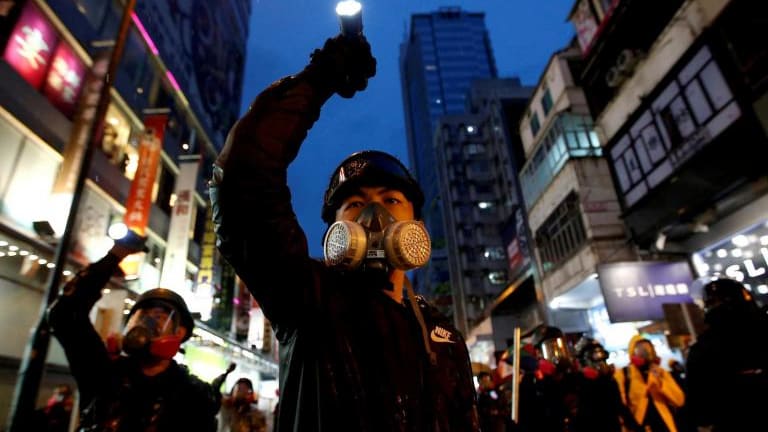
China’s decision to impose national security reforms upon Hong Kong, after decades of trying to get such changes passed through its devolved legislature, crosses a threshold from which there appears to be no turning back.
The new law presented at Friday’s National People’s Congress in Beijing promises tougher measures on those deemed as harbouring secessionist views, and codifies China’s right to use national troops and national security agencies in Hong Kong – things it was always assumed Beijing would not flinch to do anyway.
What’s shocking about this new law is not the detail of its seven articles but rather the way it is being forced upon the city by the Chinese congress. It is an admission that Beijing has no faith left, after the months of street protests last year, in the administration of the city’s leader, Carrie Lam.
“It is the beginning of the end of Hong Kong as we know it,” said Professor Steve Tsang, director of the China Institute at Soas University of London.
Joshua Wong, one of the most high-profile figures of the Hong Kong “Umbrella Movement” to protect the city’s autonomy since 2014, said the law would “kill future democratic movements, since all protests and other calls for democracy in the city will be classified as attempts at supervision, just like how the Beijing government does in [mainland] China”.
Speaking to The Independent, he called on the people of Hong Kong to “stand up and fight this uphill battle”.
Mr Wong said he believed that activists like himself, who have spoken publicly abroad and lobbied for the international community to support Hong Kong’s pro-democracy movement, were “probably the prime target” for a clause in the new law banning foreign intervention in the city.
“The claim of ‘foreign collusion’ will doubtlessly lead to arbitrary political prosecutions,” he said. “So-called ‘foreign collusion’ is no more than an excuse to rip away the pro-democracy forces.”
That there will be protests in response to Beijing’s move is unquestionable, says Prof Tsang. “It is going to be a very hot summer in Hong Kong – if anything, I think it is going to be worse than last year.”
He described Friday’s move as the death knell for the “one country, two systems” principle, whereby Hong Kong is seen as part of China but with its citizens enjoying freedoms and judicial independence unseen on the mainland. China’s premier, Li Keqiang, insisted on Friday that Beijing would continue to uphold the system.
“Either way, it is the end of ‘one country, two systems’, because if [Hong Kongers] stand up and fight [the new law] they will be crushed. If they don’t stand up, they don’t fight, then they will be rolled over. But it is pretty hard to see the people of Hong Kong just rolling over.”
China has been looking for a way out of the protest crisis for a long time now, Prof Tsang said, and the coronavirus crisis has presented “the perfect timing” to make its move, with the western democracies that would normally speak out for Hong Kong too preoccupied with their own virus outbreaks – or “dependent on China for PPE”.
For activists like Mr Wong, the only hope now is that the international community does not look the other way. On Friday, he explicitly called on the UK, as one of the signatories of the Hong Kong handover deal in 1997 that enshrined the city’s right to autonomy from China, “to stand with Hong Kong and hold a strong stance against this draconian national security law”.
So far, the British government has remained silent.